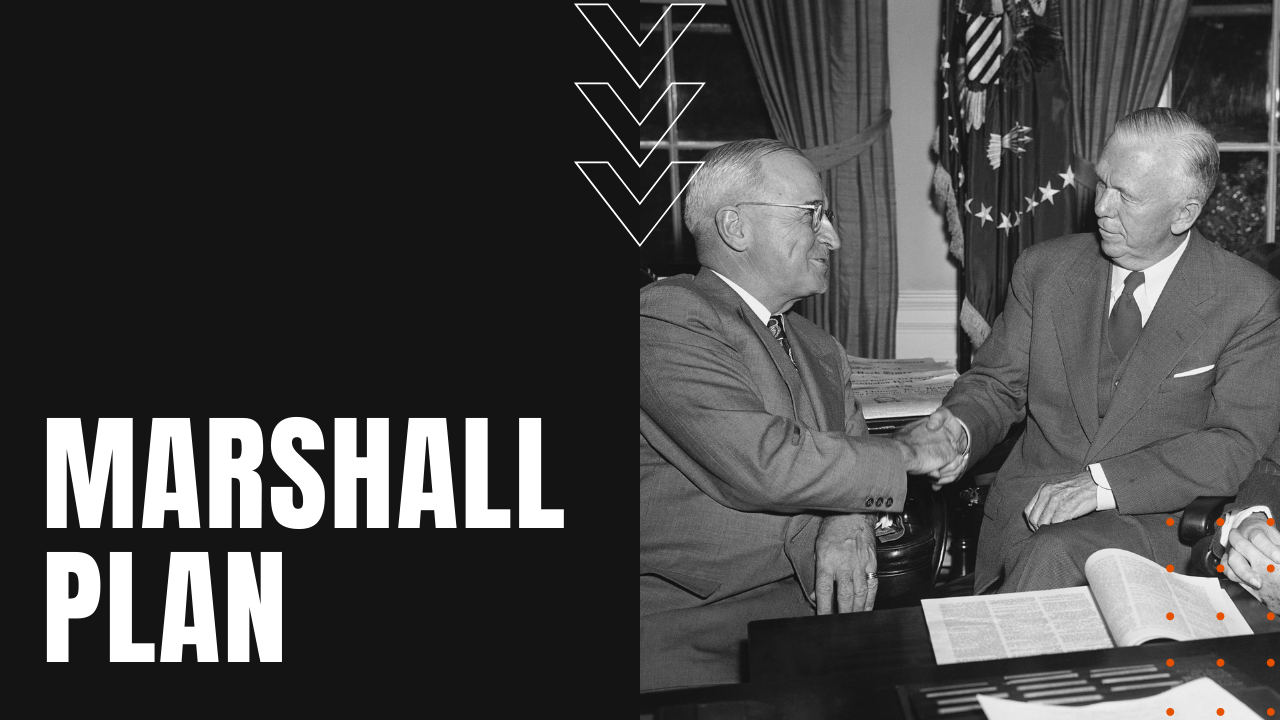Marshall Plan: US to Provide Financial Aid to Post-WWII Europe

After the end of World War Two, many cities in Europe had been reduced to rubble by Allied bombs, leading U.S. Secretary of State George C. Marshall to suggest that some regions on the continent faced imminent famine due to the war’s disruption of food production and food-related manufacturing.
To make matters worse, allied bombs had also decimated Europe’s railroads, bridges and ports, while sinking the majority of her shipping fleets, further limiting supply chain distribution of food and staples.
What was The Marshall Plan?
In response, President Harry S. Truman signed the Marshall Plan on April 3rd, 1948, which distributed $15 billion to 16 European nations, amounting to a generous five percent of the U.S. gross domestic product at the time.
The aid was provided essentially on a per capita basis, with larger amounts given to the major industrial powers, under the belief that rapid recovery of pre-war industrial nations would have a trickle-down effect over the less industrialized regions in Europe.
In general, nations such as Italy who had fought with the Axis powers and neutral nations such as Switzerland received less assistance, while those that fought beside the Allied nations received more, including a 25% total share payout to Great Britain alone.
Result of The Marshall Plan
Viewed by many historians as the ignition point of the Cold War, the CIA received five percent of all Marshall Plan distributions, allowing the spy agency to set up fake or “front” businesses in several European nations, with the intent of furthering U.S. interests in key strategic regions, as well as the funding of an anti-communist insurgency in Ukraine, which at the time was a Soviet satellite state.
For the most part, however, The Marshall Plan was generally viewed as a desperately-needed hand up for America’s European war allies and adversaries alike, prompting George C. Marshall to comment that,
“Our policy is not directed against any country, but against hunger, poverty, desperation and chaos.”
George C. Marshall
